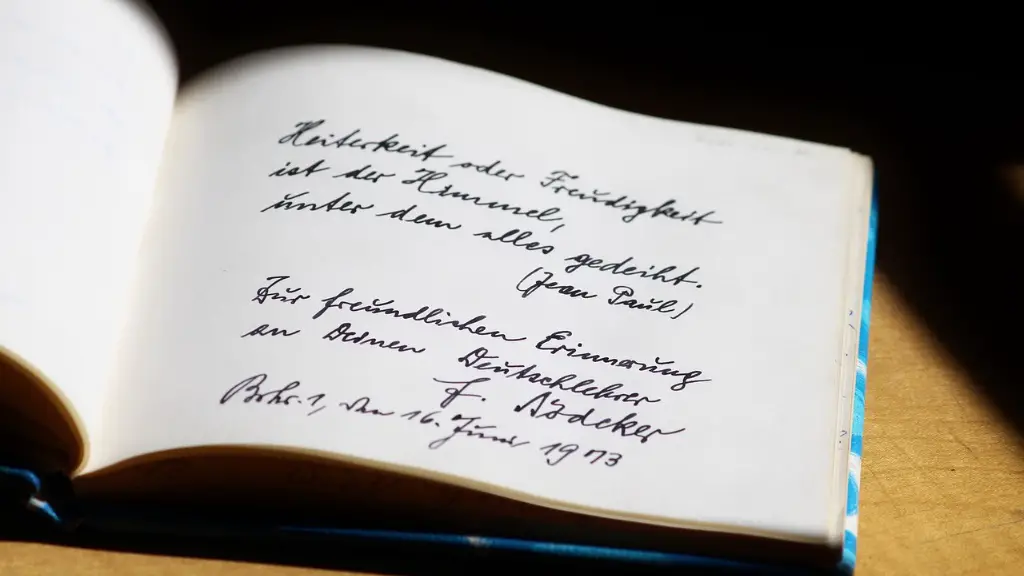Langston Hughes was an iconic African-American poet, novelist, playwright, and essayist who is known for works such as The Weary Blues, Jazz in Harlem, and The Big Sea. He is, with his work, credited for defining the aesthetic of the Harlem Renaissance – a period of artistic and cultural flowering for African-Americans that was centered around the New York City neighborhood of Harlem. He was hugely influential in the American literary canon, and is remembered for both his verse and prose. But perhaps the most influential figure who inspired Langston himself was the great American poet, Walt Whitman.
Hughes was inspired by the works of Whitman, particularly his expansive portrait of American life whilst presenting a vision of social justice. Whitman was known for his long and expansive poems that romanticized a country that had destroyed many lives and communities of African Americans. This led Hughes to create works of his own, viewing the world around him through his own eyes, as well as the eyes of African-Americans everywhere. Moreover, Langston Hughes was also inspired by poets such as John Keats, Edgar Allan Poe, Carl Sandburg, Claude McKay, and Countee Cullen. All of these poets had the ability to create vivid imagery through their writing, and Langston drew heavily from their works. Hughes especially drew from Keats and Whitman in works like “A Dream Deferred” and “My People”.
Additionally, Hughes was also greatly inspired by the cultural and social changes he witnessed every day. Events such as the Great Migration, the Harlem Renaissance, and the Civil Rights Movement gave Hughes the unique opportunity to witness African-American life and culture from a unique perspective. Furthermore, Hughes was inspired by his own life experiences, drawing from the struggles, hardships, and successes he encountered as an African-American man in a still segregated society. These experiences translated into poetry and prose which were written for and inspired by his own generation, centering heavily on the African-American experience.
Similarly, it is worth noting that Hughes was also greatly influenced by music; jazz and blues, bebop and swing, rhythm and blues, and spirituals. Much of the music Hughes heard in Harlem was a cause of his inspiration and was often celebrated in his works. The musicality of the blues and jazz music of the time period was the backbone of his writing, creating a sense of community and togetherness between his readers and his work. Hughes infused his works with the music he heard on the street, thus creating a unique sonic landscape with which his readers could identify and relate.
Langston Hughes was also influenced by his own political views and beliefs. His writings were often infused with his political beliefs, particularly his disdain for racism and his fight for Black empowerment. Hughes’ works often spoke of the plight of African-Americans in the United States and around the world. He was a fierce advocate of civil rights and justice, and his works reflect his own beliefs and values.
In conclusion, Langston Hughes’ works were largely inspired by several different sources. His poems and novels were heavily influenced by the works of other poets, his life experiences, the music of the Harlem Renaissance, and his own political ideologies. Langston Hughes left an indelible mark on American literature, leaving behind a legacy that inspired many.
The Contribution of Walt Whitman to Hughes’ Inspiration
Walt Whitman, born in 1819 and one of the most famous American poets, was known for his influential works that covered a wide range of themes such as democracy, death, democracy, and nature. Furthermore, Whitman is responsible for the symbolic representation of common language in the context of the 19th century. His influence on Langston Hughes is mostly seen in Hughes’ work, “A Dream Deferred”, which is based off of Whitman’s poem, “A Noiseless Patient Spider”. Hughes’ poem’s compares the struggles of African-Americans with a spider’s inability to reach its dreams, while Whitman’s talks of a spider’s hope and dreams. This indicates a clear influence of Whitman’s works in Langston Hughes’ poem.
Apart from this, Hughes was also inspired by Whitman’s extended description of the American landscape in his works, presenting an image of a beautiful and diverse country. Hughes, like Whitman, wrote poems which romanticized the beauty of America, even though the country had caused much suffering for the African-Americans. Hughes was also inspired by Whitman’s views on democracy, which were reiterated throughout his works. Whitman wrote about a nation of equals and Langston Hughes picked this up in his own works, presenting a vision of an inclusive and multicultural society, something which is relevant to this day.
Finally, Hughes was inspired by the poetic reach of Whitman’s works. Whitman was known to take simple ideas and present them in complex ways, something that Hughes mirrored in his own works. Hughes loved the fact that Whitman was able to create lengthy poems that still made sense and were enjoyable to read. This is something he strived to adapt in his works. All in all, it is clear that Walt Whitman had a great influence on Langston Hughes’ works, both in terms of technicality, themes, and ideas.
The Role of Life Experiences in Inspiring His Works
It is no secret that Langston Hughes’ life experiences have been an integral part of his works. Hughes was exposed to many struggles as an African-American living in a racist society, and these experiences were reflected in his works. He was influenced by the stories of racial injustice he heard growing up and the everyday occurrences of racism. This led him to create pieces that highlighted the plight of African-Americans during this time. Hughes’ works are full of descriptions and stories of racial oppression, poverty, injustice, and discrimination – all of which have been prominent issues for African-Americans for centuries. Thus, his life experiences greatly influenced his literary works.
Moreover, Hughes drew from his own experiences when it came to his artistic expression. He was greatly inspired by the music of the Harlem Renaissance, seeing it as a way to celebrate the African-American community and culture. Hughes fused his music into his works, creating a unique soundscape which his readers could identify with. Hughes also looked to his ancestral background for inspiration; he looked to African traditions and folklore to create some of his works. His works were heavily influenced by traditional African-American folktales and stories, turning this into something new and captivating. Finally, Hughes was inspired by the cultural and political movements that he was witness to every day, including the Harlem Renaissance, the Great Migration, and the Civil Rights Movement. Each of these played a role in influencing his works, creating his own unique vision of American life.
The Influence of Other Writers on His Works
Hughes was also heavily influenced by other writers, especially the poet and novelist, Claude McKay. McKay was a Jamaican-American poet who used his poem to reflect on the struggles of African-Americans under white oppression. Hughes was inspired by McKay’s works, as he often wrote about the oppression and racism experienced by African-Americans. Hughes was particularly influenced by McKay’s poem, “The White House”, which is about the tragedy of racial injustice. This had an effect on Hughes’ works as he began to write about the same issues in his poems and stories.
Furthermore, Hughes was also influenced by poets such as John Keats, Carl Sandburg, Edgar Allan Poe, and Countee Cullen. These poets had the ability to create vivid and captivating imagery through their writing and this had a great impact on the way Hughes wrote. He was able to incorporate elements of Keats’ and Cullen’s works in his own writing and took Sandburg’s techniques for both his poems and his prose. Finally, Hughes was also greatly influenced by Edgar Allan Poe, often drawing from the gothic imagery that was found in Poe’s work.
The Role of Political Ideology in His Writing
Last but not least, Langston Hughes drew from his own political ideology when creating his works. Hughes was a passionate supporter of civil rights and social justice and this often comes through in his works. He was a fierce advocate of the African-American community and was against racism and segregation in any form. His works are often infused with his political beliefs, presenting a vision of a better world for African-Americans. Hughes highlighted the need for political change and social justice, a vision that is still necessary today.
Hughes was also inspired by his own views on racism and civil rights. He often wrote about the struggles of African-Americans during this time, a way to give a voice to a community which had long been denied it. This gave birth to many of his poems which openly address the issue of racism and the fight for equality. As such, it is clear that Hughes’ political ideology had a great influence on his works and his ability to create powerful and moving stories.
His Overall Legacy
In conclusion, Langston Hughes inspired a generation of African-American writers and artists with his works and has left an indelible mark on American literature. He has become an iconic figure in the world of poetry and literature, with his works touching on a wide range of issues and topics. Hughes was able to incorporate a multitude of influences into his writing, allowing him to create pieces that have a timeless appeal and that have been relevant throughout the decades. He drew from the works of other writers, his own experiences, the music of the Harlem Renaissance, and his own political ideologies. This allowed him to create works that resonated with his readers and that have had an impact on subsequent generations.




